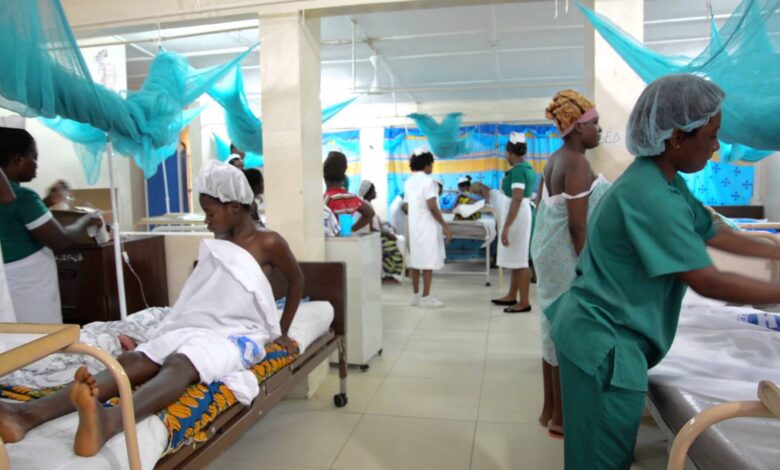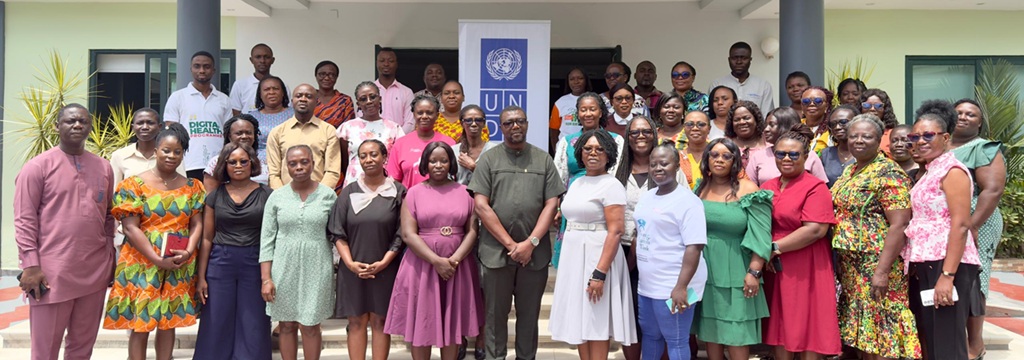Ghana Moves to End HIV Stigma in Hospitals with New e-Learning Training for Health Workers

A new effort to eliminate stigma and discrimination in Ghana’s healthcare system is underway, as the National AIDS/STI Control Programme (NACP), with support from the United Nations Development Programme (UNDP) Ghana, has begun sensitising healthcare workers on newly developed e-learning modules designed to promote inclusive and respectful healthcare delivery.
The sensitisation meeting, held in Accra, brought together Antiretroviral Therapy (ART) clinic managers and nurse managers from 20 health facilities across the Greater Accra Region. It aimed to strengthen understanding of stigma and discrimination in healthcare settings and to promote uptake of the Continuous Professional Development (CPD)-accredited e-learning modules on stigma reduction.
Tackling a Persistent Barrier to Healthcare Access
Stigma and discrimination remain a significant barrier to quality healthcare, especially for persons living with HIV. Such behaviours discourage individuals from seeking care and undermine Ghana’s progress toward epidemic control and universal health coverage.
Speaking at the event, Dr Edward Ampratwum, Head of Inclusive Growth and Accountable Governance at UNDP Ghana, underscored the importance of addressing stigma as a key development challenge.
“Health is both a driver and an outcome of development. Yet stigma and discrimination continue to limit access to essential services,” he said. “That is why UNDP Ghana, together with NACP and the GHS IT team, developed these e-learning modules to equip health workers with the skills and tools to promote inclusive and respectful healthcare delivery.”

Findings Underscore the Need for Change
Winifred N.O. Armah-Attoh, Programme Officer at the Ghana Health Service (GHS), presented findings from a joint UNDP-NACP assessment conducted across 10 health facilities in the Greater Accra Region. The survey revealed persistent stigma-related behaviours among some healthcare workers, including fear of infection during routine procedures, excessive use of protective measures, and reluctance to provide care for key populations.
“These findings show that despite progress, stigma remains embedded in certain attitudes and practices,” she said. “The new modules will help build awareness and empathy while reinforcing professional standards of care.”
Digital Learning for Inclusive Care
Participants were introduced to the Stigma Reduction e-learning modules, which include interactive lessons, pretests, and a four-part course designed to help healthcare workers identify, reflect on, and correct stigma-related behaviours. The modules also explore real-life scenarios, legal frameworks, and best practices for creating safe, inclusive healthcare environments.
The interactive session provided participants an opportunity to experience the digital platform firsthand, with many praising its practical and engaging approach. They noted that the lessons offered valuable insights into promoting equality and respect in healthcare delivery.
Building a Culture of Dignity and Respect
Through this initiative, UNDP Ghana continues to support national partners in building a more inclusive health system that upholds dignity, equality, and human rights for all. The introduction of digital learning tools marks a progressive step toward achieving sustainable behavioural change within healthcare institutions.




